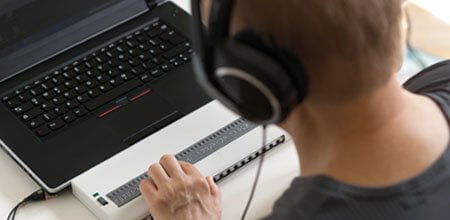Clinicians’ Expectations and Opinions of Portable Electronic Devices
Categories: Assistive Technology
What are the expectations and opinions of clinicians regarding the use of portable electronic devices as aids for individuals with traumatic brain injuries?
Past Studies
Past Studies have found that use of portable electronic devices can support or improve the functional abilities of individuals with traumatic brain injuries. Such electronic devices include beepers, voice recorders, and hand-held computers. For example, portable electronic devices can be helpful for providing reminders, such as using an alarm to remind an individual to take a medication at a certain time. Research has focused on identifying the characteristics of individuals with brain injury associated with successful use of portable electronic devices. Research has not explored the clinicians’ attitudes and expectations for selecting, training, and supporting the use of portable electronic devices.
This Study
This Study
Who May Be Affected By These Findings
Individuals with traumatic brain injury, health care providers, researchers
Caveats
The results from this study cannot be generalized to all clinicians. The participants in this study were a group of clinicians that may be more experienced with portable electronic devices than the general population of clinicians because of the nature of their work. The level of confidence among all clinicians for guiding individuals with traumatic brain injury to use a portable electronic device may actually even be lower than what this study indicated. If so, this stresses the importance of continuing education for clinicians in the field of assistive technology to assure that all individuals are afforded the opportunity to access Assistive technology, as appropriate.
Bottom Line
The researchers found that the clinicians believed that portable electronic devices were most useful for assisting individuals with learning and memory skills, as well as planning and organization techniques. The cost of the portable electronic device was listed as the top limitation for its use in rehabilitation. Those clinicians that did not personally use a portable electronic device reported low levels of confidence in their abilities to guide individuals with traumatic brain injuries to use the technology.
Please take a moment to comment on the value of this abstract:
Click here to take a brief survey
Find This Study
Hart, T., O’Neil-Pirozzi, T., & Morita, C. (2003). Clinician expectations for portable electronic devices as cognitive-behavioral orthoses in traumatic brain injury rehabilitation. Brain Injury, 17, 401-411.

